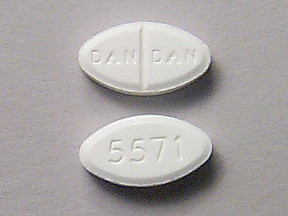TRIMETHOPRIM - ORAL
PHONETIC PRONUNCIATION: (try-METH-oh-prim)
COMMON BRAND NAME(S): Proloprim, Trimpex
GENERIC NAME(S): trimethoprim
Uses
USES: Trimethoprim is an antibiotic used to treat bacterial infections. It works by stopping the growth of bacteria. This antibiotic treats only bacterial infections. It will not work for viral infections (such as common cold, flu). Using any antibiotic when it is not needed can cause it to not work for future infections.
How to use TRIMETHOPRIM - ORAL
HOW TO USE: Take this medication by mouth on an empty stomach at least 1 hour before or 2 hours after a meal as directed by your doctor. It may be taken with food if stomach upset occurs. Dosage is based on your medical condition and response to therapy. For the best effect, take this antibiotic at evenly spaced times. To help you remember, take this medication at the same time(s) every day. Continue to take this medication until the full prescribed amount is finished, even if symptoms disappear after a few days. Stopping the medication too early may allow bacteria to continue to grow, which may result in a relapse of the infection. Inform your doctor if your condition persists or worsens after several days.
Side Effects
Precautions
Interactions
Overdose
Images

- color
- white
- shape
- oblong
- imprint
- DAN DAN, 5571

- color
- white
- shape
- oblong
- imprint
- DAN DAN, 5571
Reviews
Faq for TRIMETHOPRIM - ORAL
Trimethoprim is an antibiotic that is primarily used to treat urinary tract infections (UTIs) caused by certain bacteria. It may also be used to treat other infections, such as respiratory tract infections or traveler's diarrhea.
Trimethoprim works by inhibiting the growth and multiplication of bacteria. It specifically blocks the action of an enzyme called dihydrofolate reductase, which is needed for the synthesis of DNA and proteins in bacteria. By interfering with this process, trimethoprim effectively kills the bacteria or stops them from multiplying.
The common side effects of trimethoprim may include nausea, vomiting, diarrhea, stomach pain, headache, dizziness, or rash. In rare cases, more serious side effects such as severe allergic reactions or blood disorders may occur. It is important to consult a healthcare professional if you experience any severe or persistent side effects.
Trimethoprim is usually taken orally in the form of tablets or capsules. It is important to follow the dosage instructions provided by your healthcare provider. The medication is usually taken with a full glass of water, and it is generally recommended to take it with food to minimize stomach upset.
Yes, trimethoprim can interact with other medications. It is important to inform your healthcare provider about all the medications you are taking, including prescription, over-the-counter, and herbal products. Trimethoprim may interact with drugs like warfarin, digoxin, or certain medications used for diabetes. Your healthcare provider can advise you on potential interactions.
It is generally not recommended to use trimethoprim during pregnancy, especially in the first trimester, unless the potential benefits outweigh the risks. The use of trimethoprim while breastfeeding should also be discussed with a healthcare provider, as the drug can pass into breast milk.
Trimethoprim generally starts working within a few hours to a few days. It is important to complete the full course of antibiotics as prescribed, even if symptoms improve, to ensure complete eradication of the infection and prevent antibiotic resistance.
Disclaimer
IMPORTANT: HOW TO USE THIS INFORMATION: This is a summary and does NOT have all possible information about this product. This information does not assure that this product is safe, effective, or appropriate for you. This information is not individual medical advice and does not substitute for the advice of your health care professional. Always ask your health care professional for complete information about this product and your specific health needs.


No Reviews Yet